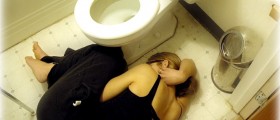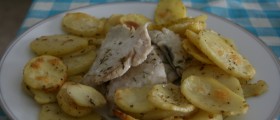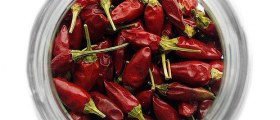
Facts Regarding Food Poisoning
Food poisoning is the name of the illness which affects you once you eat some kind of contaminated food. Generally, food poisoning is used for all types of infections, illnesses and diseases which are triggered by food and drinks. Usually, food poisoning takes place due to lack of care, proper hygiene or safety. Nevertheless, in some cases, it can be deadly.
Reasons behind Food Poisoning
One of the most common causes of food poisoning is a bacteria called salmonella. The eponymous condition manifests once the bacteria reaches one's organism through food and triggers an infection. Alternatively, viruses and parasites, as well as toxins present in the consumed food or drinks, all may lead to poisoning.
Once a person's organism gets in contact with the contaminants and the infection takes place, nausea, vomiting, loss of appetite, severe abdominal pain along with cramps, headaches and fever, are all possible symptoms.
How Is Food Poisoning Treated?
Whenever the symptoms of food poisoning last for longer than 24 hours, you are advised to seek medical assistance. After examining you, your doctor will prescribe you adequate medications and give you proper advice regarding treatment.
Nevertheless, you may treat yourself at the privacy of your home, using certain over-the-counter medications.
First of all, since viruses have their course after which they disappear, it is best to provide your body with an adequate rest so that it fights the virus off in the best possible way. However, if your food poisoning is triggered by bacterial activity, you need adequate medication to get better.
Then, do not eat solid food as long as you are vomiting or having diarrhea. Moreover, both vomiting and diarrhea make your body lose fluids fast. Thus, you need to make up for the losses by drinking a lot of water or electrolyte drinks.
Since, during food poisoning, your organism is very sensitive, you should stay away from strong smells, spicy food, extreme temperatures and other potential triggers of nausea. When you stop suffering from vomiting and diarrhea, start eating fresh fruit juices, herbal teas and plain, fresh bread.
Later on, when you regain your strength and most of the symptoms disappear, you can eat rice, potatoes and other types of heavier foods.
Prevention is Better than Treatment
Following the words from the headline, keep your food fresh, safe from contaminants and clean. The same goes for your eating quarters and yourself. Additionally, avoid food which was badly prepared or has not been cooked enough, especially when meat is in question. Unless you store leftover food in the refrigerator or freeze it, throw it away.

















Your thoughts on this
Loading...